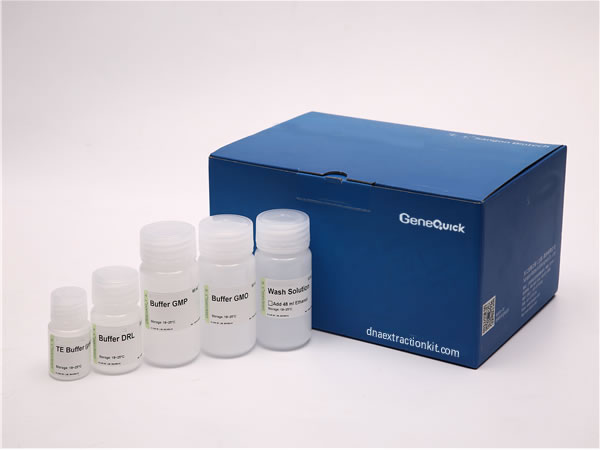What is Research DNA Extraction Kit for FFPE Samples?
FFPE stands for Formalin-Fixed Paraffin-Embedded (FFPE) samples, which are a common type of preserved tissue used in medical and biological research. These samples are treated with formalin to fix them and then embedded in paraffin wax for long-term storage. However, this process makes extracting DNA from FFPE samples particularly challenging because the formalin can damage the DNA and the paraffin must be carefully removed without degrading the genetic material further. A Research DNA Extraction Kit for FFPE Samples is a specialized tool designed to overcome these obstacles, providing researchers with high-quality DNA that can be used in various studies, such as cancer research, genetic analysis, and historical sample investigations. By using this kit, scientists can efficiently recover DNA from these preserved tissues, enabling them to conduct reliable and reproducible experiments that contribute to advancements in healthcare and science.

Technical Specifications
| Model | Method | Sample | Application | Format | Workflow |
|---|---|---|---|---|---|
| R-C-FFPE-20R | Column | FFPE Tissue | Research | 20R | Manual |
| R-C-FFPE-50R | Column | FFPE Tissue | Research | 50R | Manual |
| R-C-FFPE-100R | Column | FFPE Tissue | Research | 100R | Manual |
| R-C-FFPE-200R | Column | FFPE Tissue | Research | 200R | Manual |
| R-C-FFPE-8R | Column | FFPE Tissue | Research | 8R | Semi-automated or Full Automation |
| R-C-FFPE-24R | Column | FFPE Tissue | Research | 24R | Semi-automated or Full Automation |
| R-C-FFPE-48R | Column | FFPE Tissue | Research | 48R | Semi-automated or Full Automation |
| R-C-FFPE-72R | Column | FFPE Tissue | Research | 72R | Semi-automated or Full Automation |
| R-C-FFPE-96R | Column | FFPE Tissue | Research | 96R | Semi-automated or Full Automation |
Working Principle
The principle behind the Research DNA Extraction Kit for FFPE Samples involves a series of biochemical steps designed to isolate DNA while mitigating the effects of formalin fixation and paraffin embedding. First, the kit typically includes reagents to dissolve the paraffin wax and remove it from the tissue, a process known as deparaffinization. Next, specialized buffers and enzymes are used to break down proteins and reverse the cross-links formed by formalin, which helps to release and protect the DNA. The DNA is then purified using methods like silica-based column technology or magnetic beads, which bind the DNA and wash away impurities such as proteins, salts, and other contaminants. Finally, the purified DNA is eluted in a buffer ready for use in research applications, ensuring it is free from inhibitors that could compromise experimental results.
Performance
The performance of a Research DNA Extraction Kit for FFPE Samples is measured by its ability to yield pure, intact DNA with high efficiency, even from samples that may be decades old or heavily damaged. These kits are optimized to handle the unique challenges of FFPE tissues, such as cross-linking caused by formalin and the presence of paraffin. They typically deliver DNA that is suitable for downstream applications like PCR, sequencing, and genotyping, with minimal inhibitors that could affect results. This ensures that researchers obtain accurate and consistent data, which is crucial for peer-reviewed studies and clinical correlations. High-performance kits often include steps for deparaffinization and reversal of formalin-induced modifications, maximizing DNA recovery rates and integrity for robust research outcomes.
Application
The Research DNA Extraction Kit for FFPE Samples is widely used in academic, clinical, and industrial research settings. It enables the extraction of DNA from archived FFPE blocks, which are invaluable for retrospective studies, such as investigating disease progression over time, identifying genetic mutations in cancer samples, or analyzing historical specimens in fields like archaeology and forensics. Researchers rely on these kits to prepare DNA for next-generation sequencing, biomarker discovery, and molecular diagnostics, helping to uncover insights into human health, evolutionary biology, and environmental science. By facilitating access to genetic information from preserved tissues, this kit supports groundbreaking research that can lead to new treatments, diagnostics, and a deeper understanding of biological processes.
Core Features and Advantages
The core features of a Research DNA Extraction Kit for FFPE Samples include high efficiency in DNA recovery, compatibility with a wide range of FFPE sample types, and user-friendly protocols that save time and reduce the risk of contamination. Advantages encompass the ability to handle challenging samples with minimal hands-on time, yielding DNA of sufficient quality and quantity for sensitive downstream analyses like PCR and sequencing. Many kits also offer scalability, allowing researchers to process multiple samples simultaneously, which enhances throughput in high-volume studies. Additionally, these kits often come with optimized buffers and enzymes that improve DNA integrity, making them a reliable choice for laboratories focused on precision and reproducibility in their research endeavors.